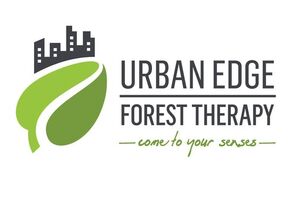 Martin Luther King Day offers a time to reflect on the impact of the great civil rights leader and his legacy of respect. A corollary to respecting other human beings, regardless of race, ethnicity, or skin color is respect for nature -- respect for other leaving creatures and the ecosystems that support them. Respect for nature, like Civil Rights, is rooted in the notion of "inherent worth." In the context of environmental ethics, Paul W. Taylor, in his groundbreaking book Respect for Nature: A Theory of Environmental Ethics, describes "inherent worth" in this way: Our duties toward the Earth's non-human forms of life are grounded on their status as entities possessing inherent worth. They have a kind of value that belongs to them by their very nature, and it is this value that makes it wrong to treat them as if they existed as mere means to human ends. It is for their sake that their good should be promoted or protected. Just as humans should be treated with respect, so should they. (p. 13) There are a range of ways to regard nature, many of which ultimately are about what nature can do for people. Nature can be regarded as a resource to be exploited (e.g., "natural resources"), focused on energy, agriculture, timber, and extraction-oriented activities. It can be experienced as a playground for outdoor activities. Perhaps more nobly, nature can be considered a refuge, an escape from hectic modern life. It can be engaged with aesthetic appreciation and with scientific curiosity. Yet, all of these, notes Taylor, differ from the attitude of respect for nature grounded in a moral sense of nature's inherent worth. A sense of nature's inherent worth is central to a biocentric outlook on nature and the attitude of respect for nature. From the perspective of a biocentric outlook, writes Taylor, [O]ne sees one's membership in the Earth's Community of Life as providing a common bond with all the different species of animals and plants that have evolved over the ages. One becomes aware that, like all other living things on our planet, one's very existence depends on the fundamental soundness and integrity of the biological system of nature. When one looks at this domain of life in its totality, one sees it to be a complex and unified web of interdependent parts." (p. 44) Environmental ethics is not an obvious legacy of Martin Luther King, Jr.'s Civil Rights work. Yet, there are interrelated threads, rooted in the notion of inherent worth and an awareness of the inter-dependencies of living creatures. As King himself said, It really boils down to this: that all life is interrelated. We are all caught in an inescapable network of mutuality, tied into a single garment of destiny. Whatever affects one destiny, affects all indirectly. On MLK Day, we can reflect on the wisdom and courage of the great Civil Rights leader, and the broad impact and application of his vision.
1 Comment
Owen Smith
9/16/2021 06:32:23 pm
Hi there, I am wondering where this photo of MLK and family came from? It's such a great photo. Do you know if it is fair use?
Reply
Leave a Reply. |
About this Blog
Hi! I'm Nancy Kopans, founder of Urban Edge Forest Therapy. Join me on an adventure to discover creative ways to connect with nature in your daily life, ways that are inspired by urban surroundings that can reveal unexpected beauty, with the potential to ignite a sense of wonder. Archives
April 2023
Categories
All
|

 RSS Feed
RSS Feed